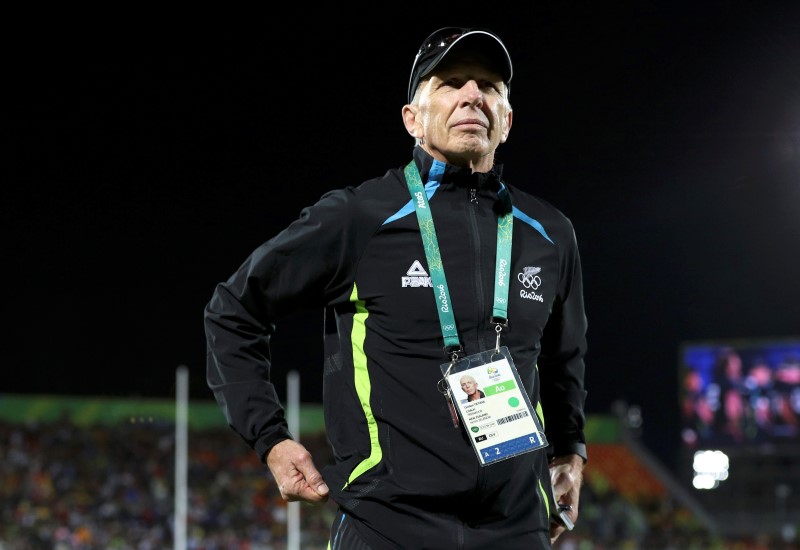WELLINGTON (Reuters) - New Zealand men's rugby sevens coach Gordon Tietjens has stepped down after 22 years in charge in the wake of their quarter-final exit at the Rio Olympics.
By far the most successful sevens coach in history, Tietjens took over the programme in 1994 and guided teams in over 100 international tournaments, yielding 12 world series titles and four Commonwealth Games gold medals.
Despite the glowing record, Tietjens bows out with regret over the ill-fated campaign at Rio where his team suffered a number of injuries and were bundled out in the last eight by eventual champions Fiji.
New Zealand, seeded third at the tournament, also suffered a shock defeat to Japan in their first game in Rio.
He conceded his last year in charge had been his most difficult, steering a side considered medal certainties in the format's Olympic debut.
"I gave it everything as a coach," Tietjens told local reporters at a media conference on Tuesday. "I felt this year, with the injuries, the expectation, we still qualified and came third in the World Series.
"I just felt the turnarounds and the pressure that created ... going through all that preparation to go to the Olympics took its toll in the end.
"It confirmed in my own mind, at that time, that it was time at the end of the Olympics, win or lose."
Tietjens' sevens sides nurtured some of the finest players to wear the All Blacks jersey, including iconic winger Jonah Lomu and current team members Ben Smith and Beauden Barrett.
"The number of former sevens players who've gone on to become All Blacks speaks for itself and demonstrates the incredible impact that Titch has had on our game," New Zealand Rugby CEO Steve Tew said.
"New Zealand Rugby and our country owe him a debt of gratitude for the legacy he's left behind and all the memories and careers he's shaped along the way."
Starting his tenure in the amateur era, Tietjens set professional standards well before the format had evolved into a global circuit with contracted, full-time players.
Sevens' confirmation in 2009 for the Rio Games was to prove a game-changer, however, as rival nations ploughed resources into teams that quickly bridged the gap to New Zealand.
"We were all incredibly disappointed with our results in Rio, but we have to acknowledge just how far sevens rugby has come," Tietjens said.
"It's become intensely competitive and the Olympics proved just how tough it is to win at this level these days.

"I'm sure lessons will be learnt and I wish my successor all the best for the Sevens Series ahead and for the Tokyo Olympic Games."